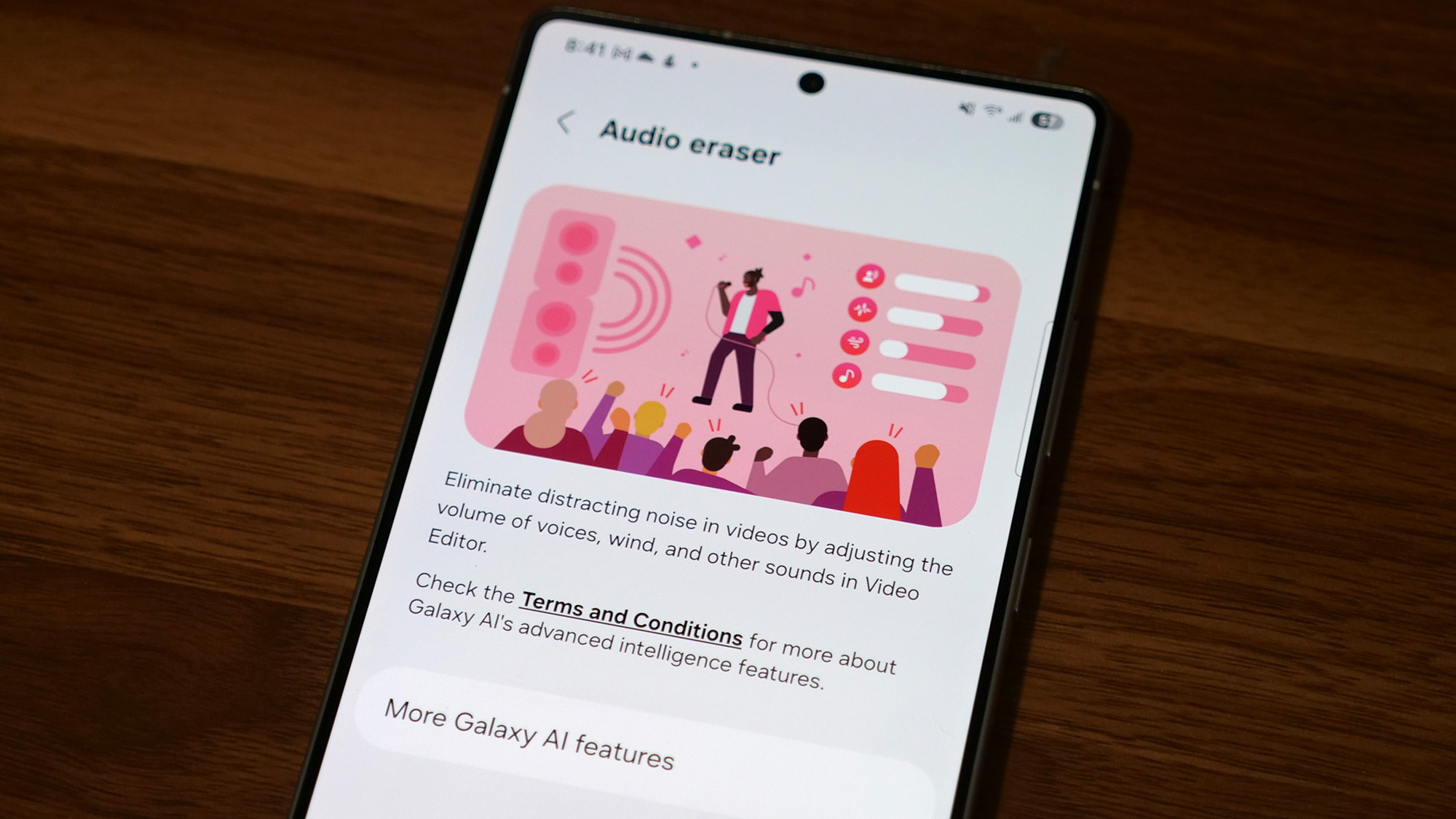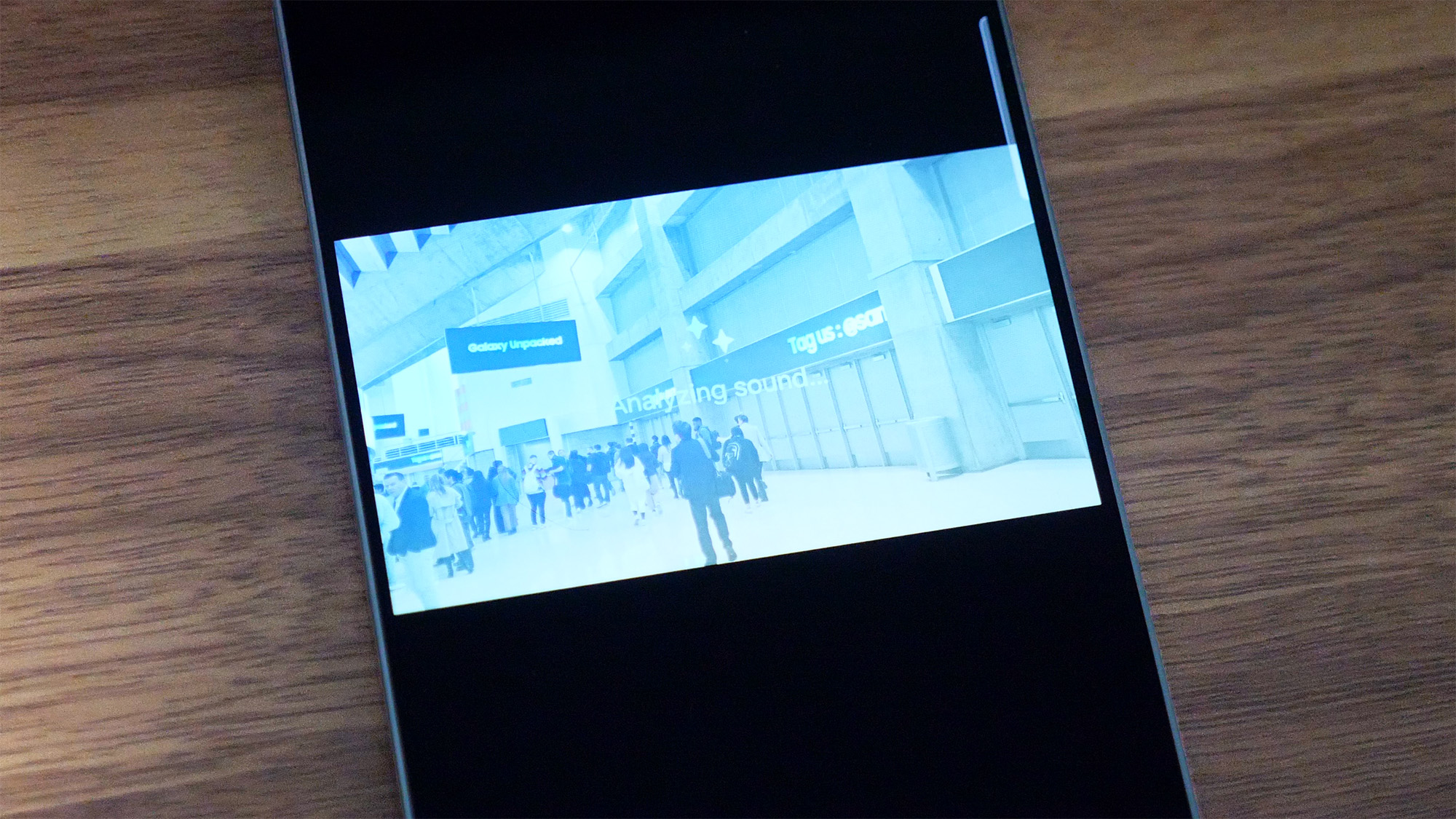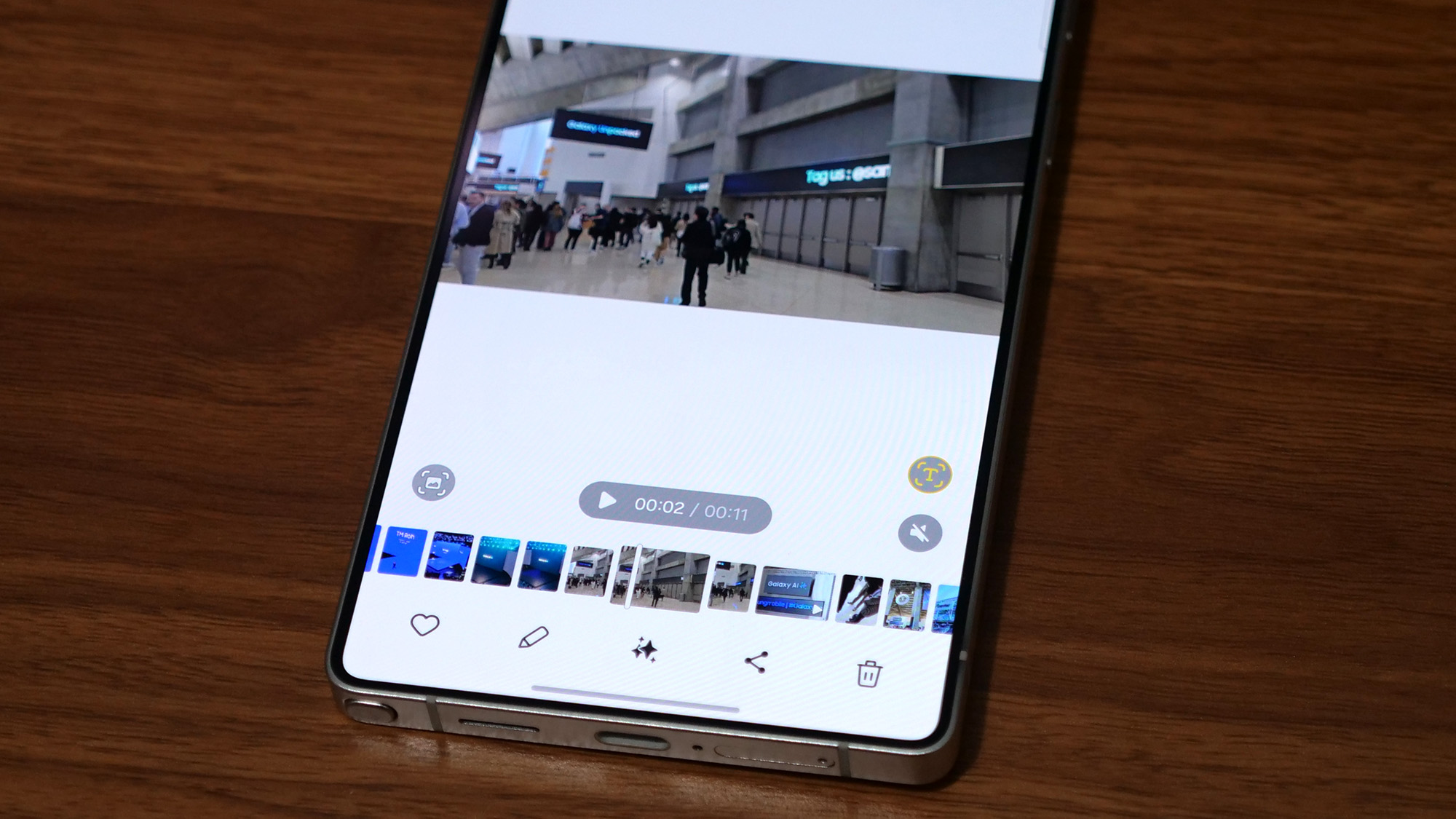Samsung's Audio Eraser on the Galaxy S25 could quietly be one of its best new features
Samsung's Audio Eraser isn't a feature that immediately stands out, but it might be the most useful feature on the Galaxy S25 phone.

Samsung unveiled a bounty of new AI-powered software this week, including one intriguing addition for anyone who captures video on their phone: Audio Eraser.
Revealed at January's Galaxy Unpacked 2025 event on Wednesday at the SAP Center in San Jose, California, Audio Eraser does exactly what it says on the tin — with brilliant execution.
Using AI to identify different sound elements in your videos — voices, music, wind, nature, crowd, and noise — Audio Eraser enables you to turn each one up or down.
Suppose you are recording yourself or someone else speaking to you in a noisy environment. Audio Eraser can reduce or eliminate distracting background sound, whether it's music, vehicle noise, or even a crowded subway station.
This isn't one of those features that immediately jumps out at you in a press release or even during Samsung's presentation, but it might be the most useful.
As the audience at Samsung's event included many individuals who produce videos professionally, Audio Eraser generated some of the most applause at Unpacked.
However, even if your videos never go beyond your friends and family, this feature could save videos that would otherwise end up in your digital trash bin.
Get The Snapshot, our free newsletter on the future of computing
Sign up to receive The Snapshot, a free special dispatch from Laptop Mag, in your inbox.
Audio Eraser in action
It's a post-production feature, so you don't need to worry about doing anything while recording.
The other plus is that it will also work on any video you bring into the Gallery app on your Galaxy S25, regardless of what it was captured on.
In Samsung's example, a group of street musicians are playing with a loud engine noise in the background. There is an auto mode that will attempt to adjust as needed, but you can dial each element in yourself, and in my testing, that delivers far superior results.
The auto mode rarely turns any sound down to -100, which is what I wanted in every simulation I tried.
There are limits to what the feature can do. I tried playing music loudly on the Sonos speaker next to me in my office while recording myself talking to the camera, and while it dramatically improved the results by making me clearly audible above the music, it wasn't able to remove the music entirely.

However, in a separate test, I played back audio captured at a busy train station on the same speaker while speaking to the camera, and Audio Eraser was able to remove that background noise completely. I suspect it's better at identifying and eliminating more steady droning background sounds, similar to the engine noise in Samsung's sample.
Even in those cases where it can't remove the background noise entirely, this is an incredibly powerful tool for personal and professional use. It's salvaging otherwise potentially unusable audio with a free app that is built into your phone.
I played audio captured at a busy train station while speaking to the camera, and Audio Eraser removed the background noise completely.

What's next?
This feature faces the same challenges as many other compelling new AI features: Awareness and discoverability. It's not difficult to find Audio Eraser; you tap the Galaxy AI button on any video in your gallery, but almost the same could be said for Audio Magic Eraser on Google Pixel phones.
This is where the awareness part comes in. Google's Audio Magic Eraser is essentially the same feature. It was announced at the Made by Google event on October 4, 2023, and is available on Pixel 8 and Pixel 9 phones.
I need to run some tests comparing the two, but the overall look is identical. Google's implementation relies on cloud processing rather than on-device processing for Samsung, so there's at least one difference in Samsung's favor.
Samsung also ships far more phones than Google, with the former sitting atop the global smartphone market at 19% as of Q3 2024 per Counterpoint, while Google still falls outside of the top 5 in the "Others" category, so even if they are identical, this puts the feature in far more users' hands.

Finally, returning briefly to discoverability, Samsung removed a couple of steps, which could make all the difference. On a Pixel, you need to tap Edit and Audio before seeing the Magic Audio Eraser interface. It is just a tap of the Galaxy AI button away for Samsung.
Following the Unpacked event, I wrote that "Samsung might have cracked the code to be your 'true AI companion," and this is yet another example.
Samsung is removing barriers to its AI features and putting them front and center in many apps. AI can become an indispensable tool for mobile phones, but the learning curve needs to be flattened so that people can use and enjoy these great new features.
Sean Riley has been covering tech professionally for over a decade now. Most of that time was as a freelancer covering varied topics including phones, wearables, tablets, smart home devices, laptops, AR, VR, mobile payments, fintech, and more. Sean is the resident mobile expert at Laptop Mag, specializing in phones and wearables, you'll find plenty of news, reviews, how-to, and opinion pieces on these subjects from him here. But Laptop Mag has also proven a perfect fit for that broad range of interests with reviews and news on the latest laptops, VR games, and computer accessories along with coverage on everything from NFTs to cybersecurity and more.

